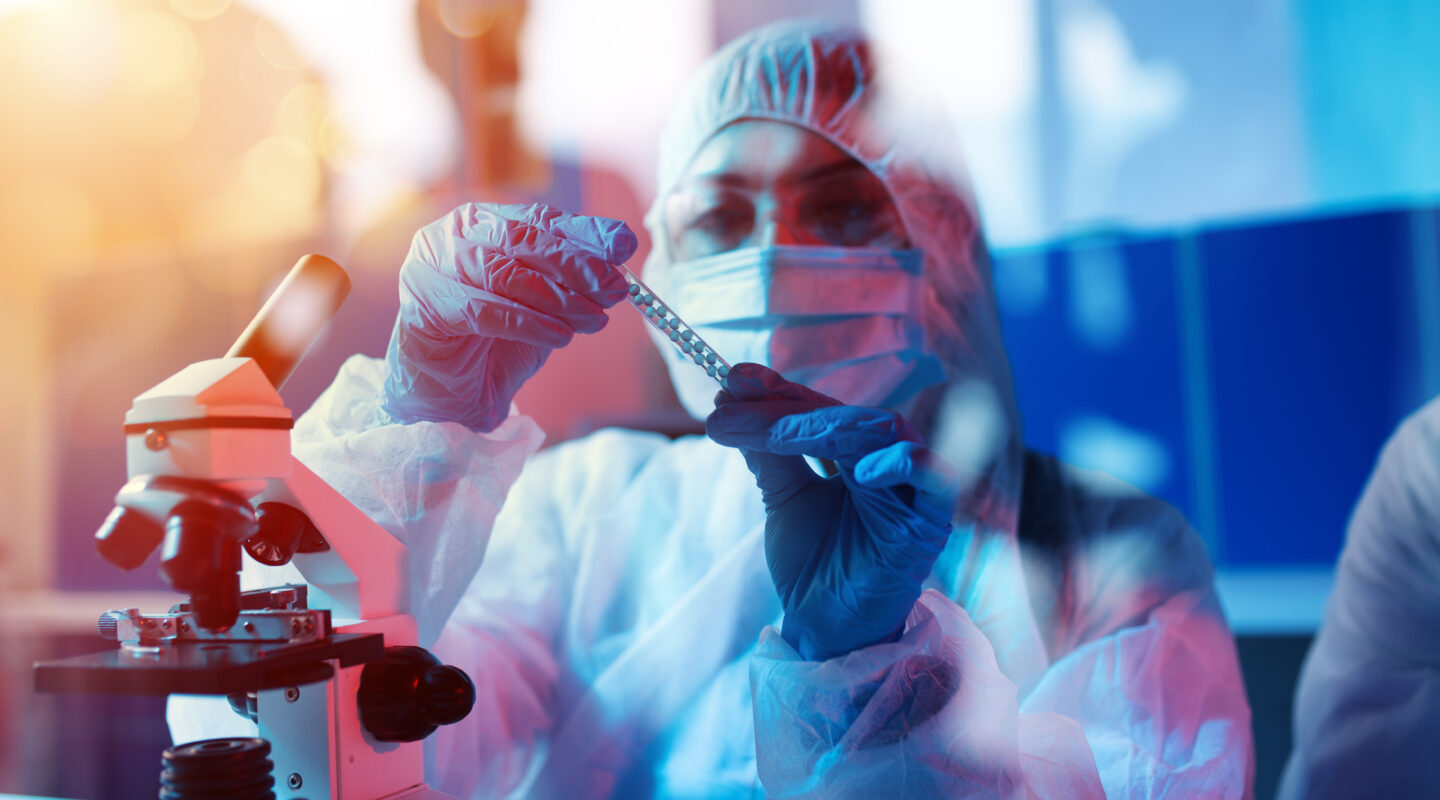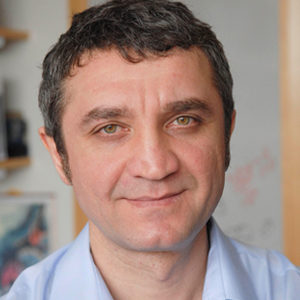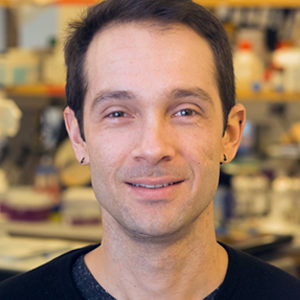
Newsletter — May 2022
Join us as we disrupt science.
Dear FASI Supporters and Friends:
At one time, scientists believed cancer was one disease. The realization that there are many different types of cancers with different underlying causes enabled science to move forward to improve treatments and find cures.
Now food allergy research is undergoing a similar transformation– thanks to FASI. FASI’s pivotal discovery that the immune and nervous systems work together to trigger food allergies has created a brand-new field of research, yielding discoveries quicker than ever imagined.
Thanks to you, our donors, we are building a new field and bringing together researchers who never collaborated before. Because of your generosity, we are forming high-powered teams of amazingly accomplished scientists in immunology, neurology, cell biology, mucosal research, and other arenas. With your help, we’re creating new technologies to make foundational research possible. We are getting at the root causes of food allergies, and training a new generation of scientists to push this new field forward.
You can speed this revolution. Attend one of informational programs. Share this newsletter with a friend. Make a gift at www.foodallergyscience.org. Join us as we disrupt science. Together we will end food allergies.
With warm regards,

Chris Olsen, M.D.

FASI Food for Thought Webinar Series
12:30- 1p.m.
Associate Professor of Biology, Massachusetts Institute of Technology
FASI Annual Symposium
June 3, 2022
ADVANCES IN MUCOSAL IMMUNITY
Please join us at our next annual symposium to discuss innovative advancements in mucosal immunity. We’ll be gathering in person at the Broad Institute and virtually via Zoom.
To register, click here.

Scientific Update
Scientists long believed food allergies were solely the result of unidentified defects in the body’s disease-fighting immune system. FASI research was the first to discover that the nervous system also plays a vital role. Immune and nervous systems work together to evaluate food, deciding to either trigger an allergic response or proceed normally.
Building a Brand-New Field
What we can see so clearly now, thanks to FASI, is that food allergies are much more than an immune response gone awry.
Often allergic responses resemble physiological rather than immunological reactions. Difficulty breathing, increased heart rate, nausea, and vomiting are all physiological responses. The brain and nervous system clearly play a role in orchestrating responses. It’s not just a dysregulated immune system behind food allergies.
Many Rapid Breakthroughs
Over the past five years, a myriad of breakthroughs in this area have come from initial FASI funding. These include: mapping the cells that line the intestines; mapping the entire enteric nervous system, which controls motor functions, local blood flow, mucosal transport and secretions, and modulates immune and endocrine functions; identifying specialized immune system sensors that communicate with the nervous system; identifying circuits in the brain that are responsible for remembering allergens; pinpointing cells that sense allergens.
Cutting-edge sequencing technologies are building an atlas of the sensory, immune, and neuronal cells in the gut. We are tracking individual interactions of sensory cells as they ‘talk’ with neurons after detecting an allergen. We have directly linked allergen detection with the development of protective responses, such as avoidance and aversion behavior around foods containing the allergen.
Building on these discoveries, FASI is transforming the scientific landscape. By bringing together scientific disciplines that had not previously collaborated to solve food allergies, FASI has opened entirely new areas of discovery. Leveraging these insights, FASI has mapped the research strategy necessary to translate these insights into therapies. FASI assembled a team of top scientists from premier institutions who share insights, resources, techniques, and new directions for discovery. FASI CEO and Co-founder Chris Olsen and her husband, Rob Small, have been pioneering supporters of food allergy research both at FASI and FARE (Food Allergy Research and Education), including a recent $10 million gift to FARE . FASI is grateful to FARE, which contributed $5 million in addition to the Olsen/Small gift to this FASI-led scientific effort focused on the immune and nervous system interactions that trigger food allergies. FASI and its partners will help break down silos and ensure that the entire ecosystem will thrive to drive solutions for food allergy.
Collaborative Not Competitive
With our commitment to being “collaborative not competitive” we have brought together two entirely distinct fields– immunology and neuroscience – to break down research silos and form natural collaborations that have potential crossovers to other diseases.
This effort will help enable us to answer two vital questions: Why do food allergies occur? And how do we stop them?
To invest in making this work move even faster, contact Kate Todd, FASI Director of Development, at [email protected]
Principal Investigator Accolades

FASI Principal Investigator, Chief, Division of Allergy and Immunology, Northwestern University Feinberg School of Medicine
Named the Chief of Feinberg’s Division of Allergy and Immunology in the Department of Medicine and Director of the newly formed Center for Human Immunobiology at Northwestern University.

FASI Chief Scientific Officer & Sterling Professor of Immunobiology at Yale University School of Medicine
Awarded the American Association of Immunologists (AAI) Excellence in Mentoring Award 2022
Elected to the American Academy of Arts and Sciences (AAAS).

FASI Principal Investigator, Professor of Immunology, Virology, & Microbiology, Rockefeller University
Elected a Howard Hughes Investigator and promoted to Full Professor at Rockefeller University.

FASI Principal Investigator, Assistant Professor, Medicine, Harvard Medical School, Assistant in Medicine, Massachusetts General Hospital
Awarded American Academy of Allergy, Asthma, and Immunology (AAAAI) Michael M. Frank Lectureship 2022.

FASI Principal Investigator, Associate Professor of Medicine, Harvard University Medical School
Awarded AAAAI K. Frank Austen & Albert L. Sheffer Lectureship 2022.
Principal Investigator Q&A
Isaac M. Chiu, Ph.D.
Associate Professor, Immunology
Harvard Medical School
Isaac Chiu, Ph.D. is a neuro-immunologist at Harvard Medical School. His work with FASI is both professionally exciting and intensely personal: Dr. Chiu has allergies to hazelnuts and macadamia nuts and his 9-year-old son, Joshua, has very severe food allergies to different types of tree nuts. Both he and his son carry an epinephrine injector.
Like many of the foundational research scientists funded by FASI, Dr. Chiu’s research never focused on food allergies until he became involved with FASI. His research has examined how the nervous system interacts with immune cells and microbes to induce pain, as well as how allergic reactions cause itch and inflammation. He started his career focusing on neuro-immune crosstalk at major barrier sites, such as the gut and skin.

When Joshua was one-year-old, he had his first anaphylactic reaction to cashews in a cupcake. It was one of the scariest moments of our lives, rushing him to the hospital. Food allergies affect our lives every day and we have to be constantly vigilant. It strikes me how little is known about how food allergies occur. It’s incredibly important to me personally that we learn why food allergies are so prevalent and why they are increasing. We need to understand the mechanisms in our bodies that lead to the genesis of food allergies so we can stop them.
I was speaking at an immunology conference in China in 2019 about gut-neuro-immune signaling and how the gut’s nervous system interacts with the immune system in the small intestine to fight off Salmonella enterica infections. After that talk, (FASI Chief Scientific Officer) Dr. Ruslan Medzhitov, Ph.D., came up to me and asked if I wanted to be part of the food allergy consortium that he was organizing and working on. I was very honored, as I greatly admire Dr. Medzhitov’s work and he is one of the most respected scientists in our field.
Ruslan realized that the neuroimmune connection was critical to understanding food allergies and he saw that my work examining the interaction between the gut, nervous system, and immune system was relevant. We have found that specialized sensory neurons called nociceptors regulate the entry points of Salmonella in the gut. The same neurons could also regulate food allergen entry and immune responses in the gut. Therefore, understanding how sensory neurons communicate with the gut could be important in food allergies. We are also doing research on how itch could connect to food allergies. Sensory neurons in the skin mediate itch. In terms of allergies, we know that a lot of patients who have eczema on their skin are at risk of developing food allergies. We hypothesize that there is a potential connection with itch, which is characteristic of eczema. One consequence of itch is that when you scratch and damage the skin barrier, it could promote entry of allergens through that barrier that could ultimately lead to the development of food allergies. On the other hand, neuronal circuits could also link the skin to the gut. We are currently researching the connection between the skin and the gut, and development of systemic food allergies, which we believe could relate to a nervous system connection.
We are asking these questions: Do gut-innervating sensory neurons regulate the immune response to food allergens? Could blocking these neuroimmune interactions help prevent allergen sensitization? We are also looking at how neurons contribute to anaphylaxis itself. We are also asking is there a connection of itch and food allergies. Could targeting itch also lead to decreased food allergies? Finally, we would like to understand how the nervous system is changed long-term by food allergies. By learning the underlying basis for food allergies, maybe we can reset those changes. I’m hoping we can make treatments more effective or find a different approach to treating food allergies that we haven’t thought about. That would be exciting!
By networking with all the other scientists, I learn about the latest exciting developments in this field. The seminars and talks are amazing. FASI is bringing people into the field who are not primarily allergists. By bringing top neuroscientists and immunologists together, we all learn from each other. These unique interactions would never happen without FASI. FASI is a new paradigm, where I can develop collaborations and mentorship opportunities across different disciplines with other principal investigators from top research hospitals, including at Yale, Boston Children’s Hospital, Harvard, Mass General, and the Brigham and Women’s Hospital.
Definitely. Some of the same mechanisms, like neural-immune signaling, could have a major impact on chronic pain or itch, which we see in other diseases. The principles we are thinking about, like mapping neural circuits and how they affect the gut and the skin, could lead to new treatments for anything that’s affecting these two systems, such as chronic pain, itch, eczema, obesity, and even neurological diseases such as Parkinson’s, and autism spectrum disorder for example.
If you would like to learn more about this research or fund the clinical trial, please send us an email at [email protected].

“As a Mom, I believe no family should ever have to go to the emergency room and be afraid their child is going to die because of something they ate.”
– Erica Colleran, FASI Donor and Supporter
Now six years old, Andrew’s food allergies are milder. But tales of anaphylactic reactions and emergency room visits faced by other parents drive the Collerans to want food allergy science to move faster. That desire inspired them to make a significant gift to invest in FASI’s revolutionary research.
“Why are food allergies happening, why are the numbers skyrocketing?” asks Erica. “As a Mom, I want to know what’s going on in my son’s body and other children’s bodies to cause food allergies.”
Kevin was one of the original 10 employees of Facebook and now runs a successful venture capital fund. Kevin and Erica are both sophisticated philanthropists. “FASI strikes me as a very high-reward project,” says Kevin.
“I’m very excited about how FASI is examining the neuro-immune connections in food allergies. FASI’s research is foundational science that will help not just our son Andrew, but lots of other kids too. And it could have broad implications, not just for food allergies but for other diseases as well,” Erica believes.
“FASI’s founders have donated the money needed to cover overhead costs, so 100 percent of our gift goes directly to research,” observes Kevin. “That’s a really powerful added incentive for us.”
The Collerans also are committed to improving food allergy diagnosis, which they see as horribly dated. “How do you tell a little kid: ‘Ok, we’re going to test you every 20 minutes with something that might greatly harm you?’” says Erica. “Really?”
“Or you take your two-year-old to the doctor and say ‘we’re going to scratch your back with a bunch of different substances, and hold your arms down so you don’t scratch, no matter how much it itches,’” Kevin adds, shaking his head. “Who wants to do that to their kid?”
“And then you get a lot of blanket positives. Are they true positives? This is food, not some rare substance,” says Erica.
“As a Mom, I believe no family should ever have to go to the emergency room and be afraid their child is going to die because of something they ate,” adds Erica. “I believe that working with FASI, together we can make food allergies history.”